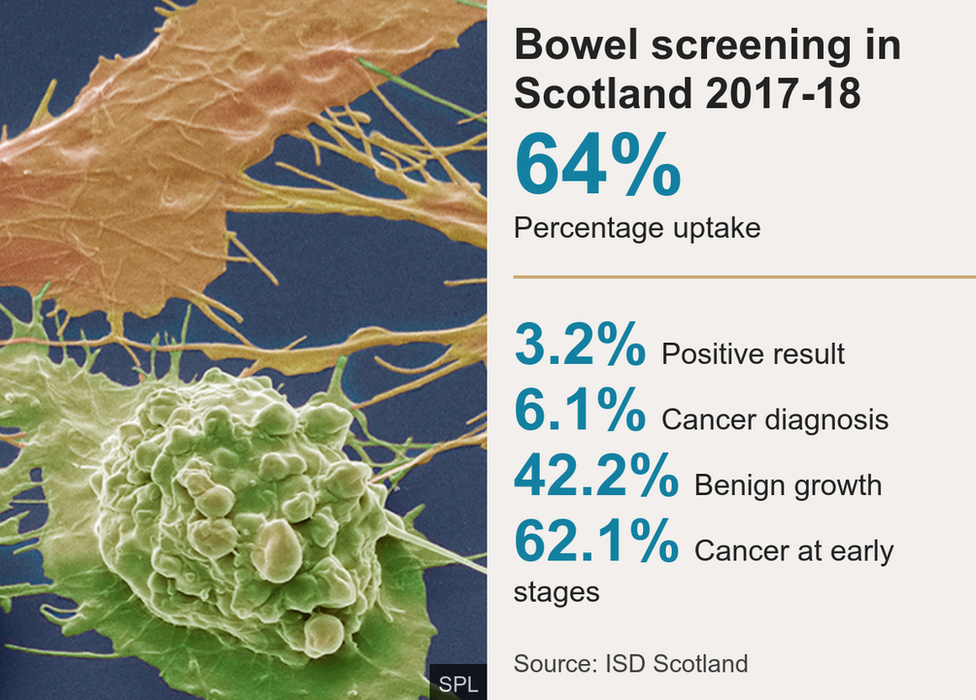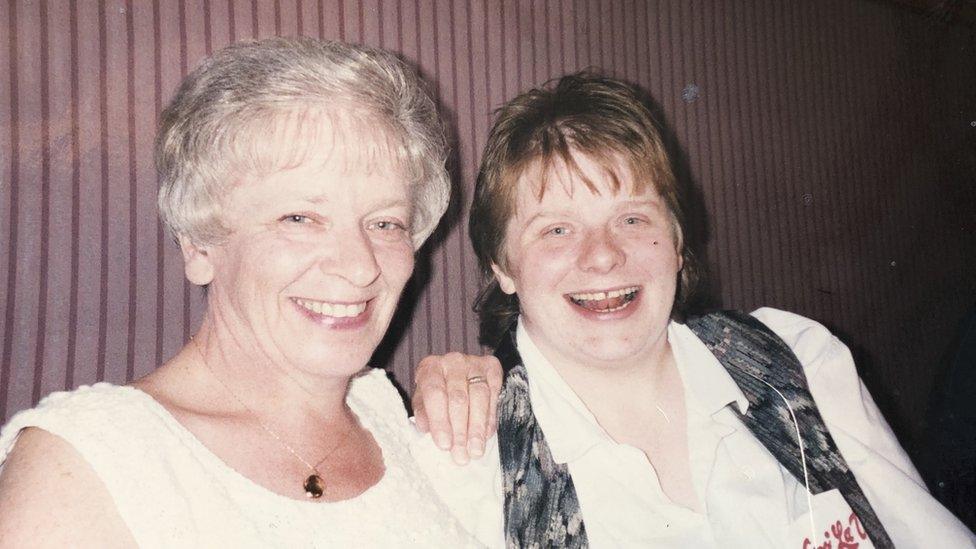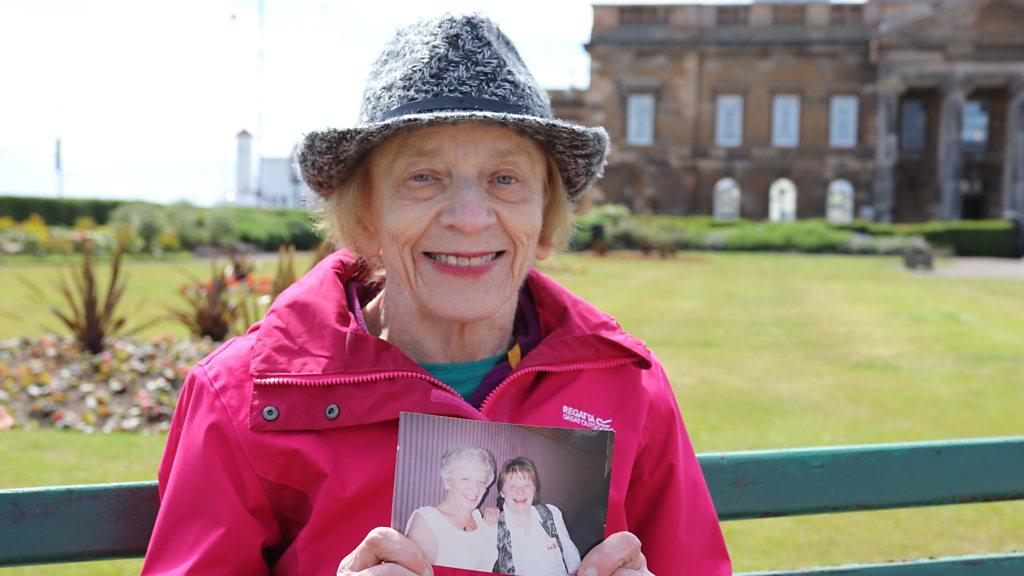'Me and my daughter had bowel cancer - I lived, she did not'
- Published
Margaret Patton: "When Lorna died, I was left with the feeling that if she was screened when I was diagnosed, she could be here with me today."
When Margaret Patton was diagnosed with bowel cancer 16 years ago she knew she would have the love and support of daughter Lorna to get her through the dark days.
But just two years later, Lorna herself was diagnosed with the same cancer at the age of 39.
Margaret survived, Lorna did not.
The mother and daughter never thought to examine the possibility they might both get bowel cancer.
It is a regret Margaret now lives with.
The Ayrshire pensioner explains: "If I had talked about my family history, looked into it, I wonder if my daughter might still be here today."
However, for Margaret she simply did not know about her family's cancer history because she had been adopted as a baby.
At hospital appointments she was asked about the illnesses of relatives and when she spoke of being an adoptee the conversion ended.
Margaret said: "When Lorna died, I was left with the feeling that if she was screened when I was diagnosed, she could be here with me today."
The 75-year-old was adopted at the age of two from the Kyle Law Poor Home Institution in Ayr.
She had a happy upbringing in the town where she raised her only child Lorna.

The bond between mother and daughter was strengthened when Margaret's bowel cancer was diagnosed in 2003.
She recalls Lorna's reaction to the uncertainty ahead.
"Mum you're not going to die, are you Mum? Please, please, you're not going to die."
Bowel cancer is a common one and people aged 50 and over in Scotland are offered screening for the disease every two years until the age of 74.
Common cancer
Bowel Cancer UK says that in most cases it is not passed down through the family.
However, if a person has one or more relatives with a known genetic condition, like Familial Adenomatous Polyposis, they are more likely to be offered regular medical surveillance.
Lisa Wilde, from Bowel Cancer UK, said: "People with these conditions have a much higher chance of developing bowel cancer and they are more likely to be diagnosed at a younger age."

Margaret and her daughter Lorna
For many adoptees wishing to trace their birth parents, the first stage is to register with the Adoption Contact Register for Scotland.
The charity Birthlink manages a database which enables birth relatives and adoptees to declare that they wish to be found.
Birthlink social worker Lara Wierzoch supports people who are beginning their search about their medical backgrounds.
She said: "We encourage the person reaching out to consider the implications on the other person.
"If we reach out to that birth mother, has she been looking for her child for a number of years? What might be the implications on her?"
Lara says that the desire to search can come at any stage in life.
She added: "It's such an individual decision. There are so many emotions and things to consider. You can just enquire; you don't have to take any active steps.
"We would always encourage people to have more open conversations about adoption."

What are bowel cancer symptoms?
a persistent change in bowel habit - going more often, with looser stools and sometimes tummy pain
blood in the stools without other symptoms, such as piles
abdominal pain, discomfort or bloating always brought on by eating - sometimes resulting in a reduction in the amount of food eaten and weight loss
Source: NHS Scotland, external

In her grief after Lorna's death, Margaret made some enquiries about her birth family, but did not trace her birth parents.
While it can never bring her own daughter back, she believes other adoptees should look into their family medical history.
"It's so very, very important to look in to your history," she added.
"There is so much support out there these days, just do it, you never know, it could save a life."
- Published18 July 2019
